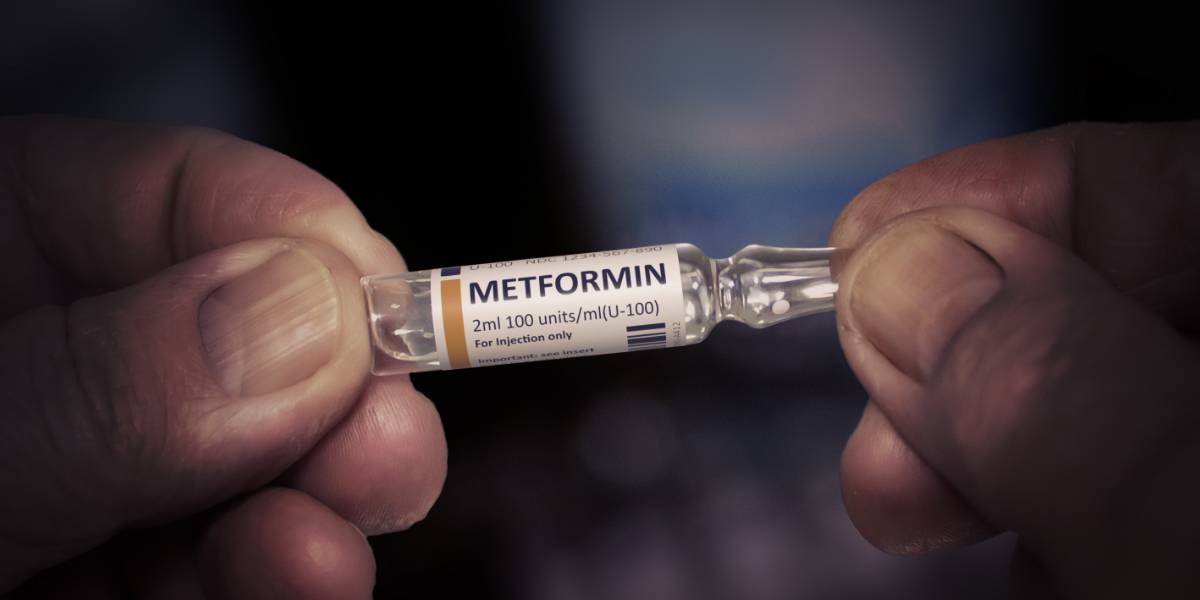Metformin is the most commonly prescribed treatment for type 2 diabetes and has consistently shown anti-cancer benefits in research studies.
Metformin has modest effects on blood glucose levels but helps to reduce the amount of insulin produced by the body and therefore has wider benefits including reducing cancer risk.
How does metformin work?
Metformin helps to improve sensitivity to insulin in the body and helps to reduce production of glucose by the liver (gluconeogenesis). These two mechanisms can both help to reduce the amount of insulin the body needs to produce.
- Read more about metformin
Insulin and cancer
Insulin is the hormone responsible for moving glucose out of the blood and into our cells. Insulin has another role and that is in helping new cells to grow.
Cancer occurs when new cells grow in an uncontrolled fashio, resulting in a tumour. As insulin helps new cells to grow, the hormone can therefore accelerate the development of cancer.
People with higher than normal levels of insulin circulating in their body ( hyperinsulinemia ) are therefore at greater risk of cancer.
Type 2 diabetes is most often characterised by higher than normal levels of insulin, which raises the risk of a number of types of cancer.
Looking at the situation from the other side, treatments and lifestyle changes that help to reduce levels of insulin in the body therefore may help to reduce the risks of cancer.
Metformin’s impact on cancer
Many research studies have demonstrated decreased cancer risk and improved mortality rates amongst people with type 2 diabetes on metformin.
When tested in rodents, metformin has been shown to help impede the growth of cancer cells. Researchers have observed that metformin appears to target the stem cells that can initiate cancer.
Metformin and cancer in the news
Metformin never seems to far from the headlines.
Here are a collection of news stories from the last few years regarding metformin’s effects on cancer.







